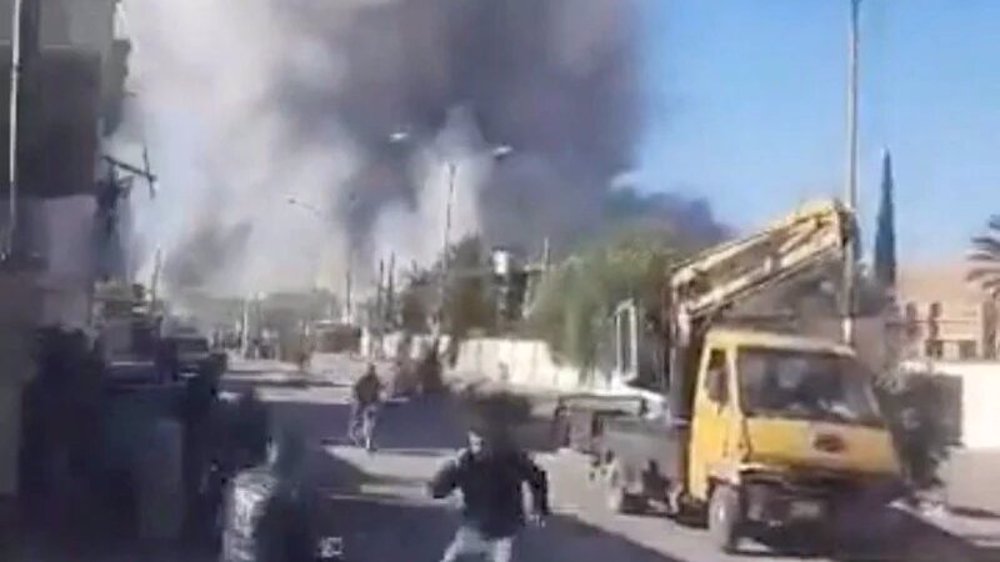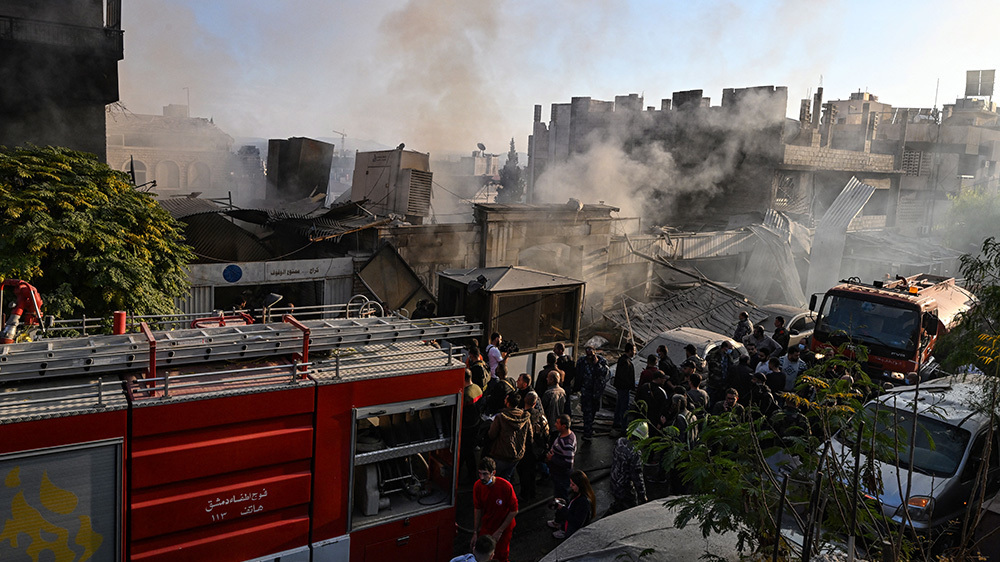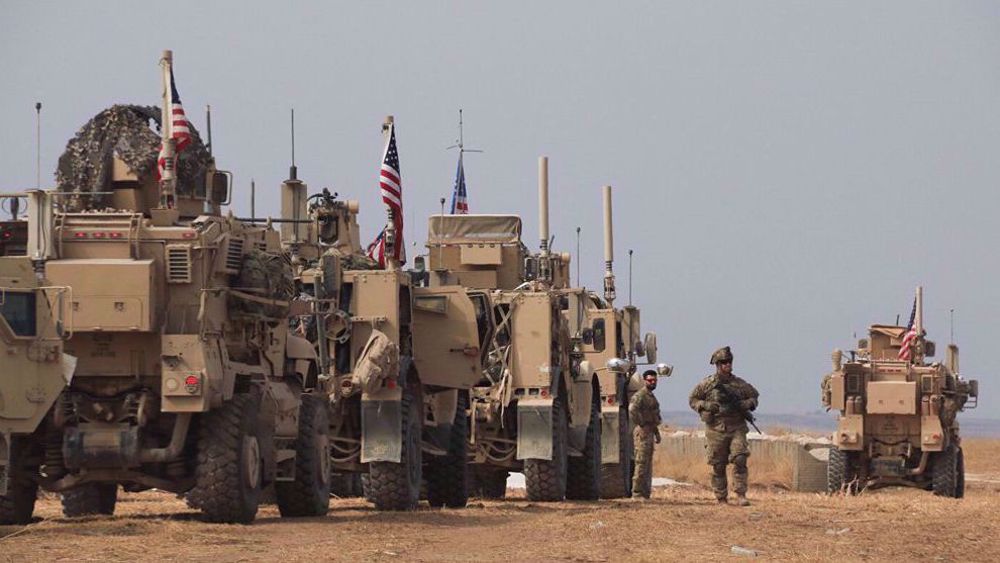Aid convoy reaches militant-held Eastern Ghouta: ICRC
The International Committee of the Red Cross (ICRC) says a humanitarian aid convoy has entered Syria’s Eastern Ghouta as government troops secured a humanitarian corridor for trapped civilians to leave the militant-held area near Damascus.
The ICRC said Friday that the aid convoy comprising 13 trucks passed through front lines and was heading to the enclave’s biggest town, Douma. No further details were immediately available.
The convoy was supposed to deliver its relief supplies on Monday, but it could not enter the area due to heavy fighting.
The ICRC is preparing additional supplies, including medical material, to be sent in a bigger convoy next week.
Bilal Abu Salah, a resident of Douma said, “The situation is relatively good today,” but added that shortages are still acute, causing great hardship. “Entire families eat one meal in several days,” he said.
Eastern Ghouta, a besieged area on the outskirts of Damascus with a population of some 400,000 people, has witnessed deadly violence over the past few weeks, with Takfiri terrorists launching mortar attacks on the Syrian capital in the face of an imminent humiliating defeat.

Last week, army troops secured a safe corridor set up for the evacuation of civilians via the al-Wafideen checkpoint, through which a UN aid convoy, consisting 46 truckloads of health, food and nutrition supplies, crossed into Eastern Ghouta and headed for the main town of Douma.
Russia, which is helping Damascus curb foreign-backed militancy in the Arab country, has designated four safe routes in Eastern Ghouta after a ceasefire was declared across Syria by the UN Security Council.
That ceasefire does not apply to the fight against terrorists and their affiliates.
The Syrian army is making steady advances in the enclave, but it is facing a hostile West, which is threatening airstrikes to stop the push. President Bashar al-Assad vowed last week that Syrian forces would continue the campaign until the whole area is retaken.
German politicians in Syria
Separately, a group of seven politicians from the Alternative for Germany (AfD) party has visited Syria to examine the situation on the ground for themselves, saying mainstream media do not provide an accurate coverage of what is really happening in the Arab country.
“We have set out to Syria in order to receive information about the humanitarian situation in the country on-site. We do not rely exclusively on media coverage, which paints a horrifying picture of the developments, we want to find out what the living conditions are,” Christian Blex, an AfD parliamentarian from the western state of North Rhine-Westphalia (NRW) told Sputnik.

The delegation entered Syria from Lebanon on March 5, with its first destination being the country’s capital, Damascus, where they met with religious figures.
“What the state media won’t tell: On February 5, “moderate” terrorists from Eastern Ghouta shelled a Syrian Orthodox Church with mortars. The altar and floor were damaged, fortunately, no one was hurt,” Blex wrote on Twitter.

The AfD delegation also plans to hold meetings with senior Syrian officials and politicians. They have spoken to the minister of state for national reconciliation affairs about the Syrian government’s program, aimed at reintegrating the militants into peaceful life.
“The government grants amnesty to people willing to reintegrate into peaceful life, as long as they have not committed war crimes. There is a whole array of people, and even cities that are ready to reintegrate, seeking negotiations,” Blex said.
“They also told us about the background of terrorist groups in Syria and foreign influence on these groups: some are financed by Turkey; others are funded by Saudi Arabia, Qatar or the United States. We have also found out that the United States maintains its bases in Syria in violation of the norms of international law," Blex elaborated,” he added.

When asked whether Syria was a safe country of origin, Blex said that the first impression was that it was, although said he said they could not make a conclusion based on what they had already seen.
“We didn’t see any danger on our way from Lebanese border to Damascus. Certainly, there is some threat closer to the territories, where terrorists are, due to the shelling. But they are limited to several regions in Syria. As soon as we visit Homs and Aleppo, we will have a full picture of the situation. For now, I would share the US's evaluation and say that Syria is a safe country,” the politician said.
Blex said that German daily newspapers “conceal the fact that terrorists from Eastern Ghouta are shelling civilians and hospitals. They do not report it, because such information does not fit well into this black-and-white picture. What a shame, in such a country as Germany, which is a democracy, there is an obvious lack of information flow and honest coverage of events in the area. I believe that German media coverage of Syrian conflict is fundamentally untrue.”
Israeli strikes kill 88 Palestinians in northern Gaza
American voters plainly rejected complicity in Gaza genocide: Iran FM spox
ICC should issue more arrest warrants for Israeli authorities over Gaza genocide: UN expert
Israel using AI weapons co-produced by India in Gaza genocide: Report
Israel issues new evacuation orders, shortly launches strikes on southern Lebanon
VIDEO | Press TV's news headlines
From Iraq to Gaza: The great disconnect between British people and rulers
Syria condemns Israel's killing of 36 in 'horrific' strike on Palmyra










 This makes it easy to access the Press TV website
This makes it easy to access the Press TV website